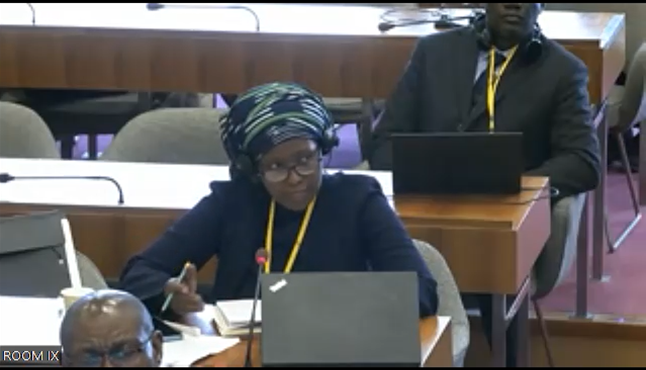
The Global Partnership for Education Knowledge and Innovation Exchange (KIX) Africa 21 Hub took part in the summit and launch meeting of the UNESCO-KFIT project “Information and Communication Technologies (ICT) Transforming Education in Africa,” held from March 4 to 6, 2024, at the organisation’s headquarters in Paris.
The UNESCO-KFIT project “ICT Transforming Education in Africa” is an initiative developed within the framework of the UNESCO-Korea Funds-in-Trust (KFIT) contribution by the Republic of Korea. It aims to strengthen the resilience of school systems in select African countries through the integration of innovative ICT-based approaches to education.
The goal of the meeting, which brought together representatives from member countries, the donor (Republic of Korea), UNESCO, experts and international partners, was to present the results of the second phase of the project and discuss the implementation of the third phase.
Through its coordinator, Dr. Maimouna SISSOKO-TOURE, the Hub contributed to the discussions to enrich reflection on the third phase in terms of the use of ICT for education, and by highlighting possible synergies between the UNESCO-KFIT project “ICT Transforming Education in Africa” and the KIX Africa 21 Hub.
In her speech, the Coordinator of the KIX Africa 21 Hub presented the Hub’s results and highlighted the commitment of its consortium members, notably AUF, CONFEMEN and IFEF-OIF (Lead Partner), to the use of ICT, and in particular Artificial Intelligence, to improve educational policies and practices. She particularly welcomed the participation of two countries from the hub to this project, Côte d’Ivoire and Senegal.
During the meeting, the success of the second phase of the project (2020–2023) was discussed, and the participating countries (Côte d’Ivoire, Ghana and Senegal) shared encouraging results and achievements, highlighting the positive impact of ICT on improving the quality of education.
Thanks to this success, the promising third phase of the project (2024–2027) will be extended to Namibia, Uganda and Tanzania. This new phase aims to capitalize on the progress made in previous phases, to extend the project’s impact to a greater number of countries and learners, and to promote the sustainability and scaling of technological solutions for education.
At the end of the meeting, the participants, including the Coordinator of the KIX Africa 21 Hub, expressed their determination to continue the work accomplished so far to make the UNESCO-KFIT project “ICT Transforming Education in Africa” a real long-term success.
